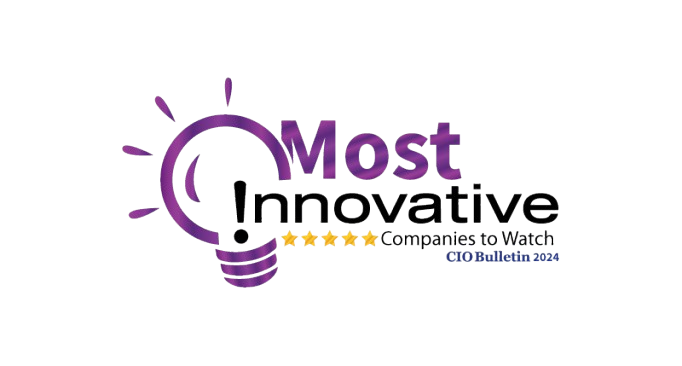7 Trends You May Have Missed About HubSpot
May 8, 2022
Since HubSpot launch in 2006, HubSpot has always made sure that it is in sync with the ongoing trends in the market. The CRM platform helps several businesses make the most of the latest tech trends for streamlining their business processes. Right from managing sales leads and creating targeted marketing campaigns to providing personalized customer services and creating custom reports, HubSpot has allowed thousands of users to make the most of the latest digital trends.
To get the desired traction and drive a handsome revenue home, it is important for users to be well-versed with ongoing and new HubSpot trends. The CRM platform keeps reinventing itself and upgrading its features to meet specific user requirements.
Here are 7 of the most important trends that you may have missed about HubSpot:
1. Seamless Email Automation
If you have missed this HubSpot trend, you may have been living under a rock! Email automation forms the core of HubSpot CRM and helps businesses to use the communication channel to its fullest. It allows the marketing, sales, and service departments to create and send personalized emails using automated tools.
However, email automation comes in handy for creating targeted marketing campaigns. HubSpot Marketing Hub helps you reach out to your prospects and customers via innovative and tailor-made emails. Throughout the buying journeys of your customers, HubSpot allows you to reach out to them with personalized promotional messages.
The trend of email automation helps you revolutionize the manner in which you create and manage your marketing campaigns. The feature of reply tracking on a marketing email helps you keep track of all the replies you receive from the recipients of your marketing emails. The CRM platform also provides users with the click tracking feature to ascertain the number of recipients clicking and opening your marketing emails.
Email automation prevents your marketing professionals from spending their time and effort in carrying out manual processes to reach out to your prospects/customers and track their responses.
2. HubSpot Sandboxes
Every CRM platform requires users to test new features before they are implemented into the core environment. This allows you and your team members to work safely and ensure the utmost security of your valuable records.
Such secure and organized testing within HubSpot CRM is possible with sandboxes. A sandbox is a testing environment that is more or less similar to the core production environment of your CRM platform. By replicating the look and feel of the production environment, a sandbox allows users to test new features, tools, and business processes without affecting the production environment. This prevents you from taking the risk by keeping all your tests and iterations away from the core HubSpot environment.
From system administrators to developers, sandboxes can be used by anyone willing to undertake tests in a secure and private environment. Moreover, you can mask your production data and use dummy data for testing purposes in a sandbox to ensure its privacy. This way, you can keep your valuable records away from the personnel that does not have access to them.
Apart from testing new tools and features, sandboxes can be used for training new employees in a safe environment without putting your production environment at risk.
3. Business Units In The Marketing Hub
This trend is for the big shots managing multiple brands under a single umbrella! If your business owns and manages different brands across multiple channels, the feature of Business Units in the Marketing Hub allows you to monitor all of them from a centralized platform.
The CRM platform allows you to create separate business units for each of your brands and manage the marketing processes related to the same. For each of your brands, you can use HubSpot tools for reaching out to your target audience, persuading them to engage with the concerned brand, and tracking their behaviors using automated tools.
If you are managing multiple brands under one roof, you would certainly look for cross-selling and up-selling opportunities. The Business Units in HubSpot help create and run targeted cross-selling and up-selling campaigns for each of your brands.
HubSpot has always been known for facilitating seamless integrations and collaborations. Using the same approach, prevents your team from handling multiple brands on different platforms by providing you with a centralized digital solution.
Moreover, the feature of Business Units makes reporting easier and more effective. It helps you create custom reports related to all your brands and compare them to analyze how well each of your ventures is doing as compared to the others. This HubSpot initiative was designed to simplify marketing processes for businesses handling multiple brands simultaneously.
4. Operations Hub
For the longest time, HubSpot has been individually helping marketing, sales, and customer service teams with the Marketing Hub, Sales Hub, and Service Hub respectively. To facilitate collaboration between these teams and allow smooth business processes, the CRM platform came up with the Operations Hub in 2021.
The goal of the Operations Hub is to unify business processes by bringing them under the same umbrella. It caters to the new professional category of RevOps (revenue operations), professionals responsible for driving good revenue home through business operations. The three major features offered by the Operations Hub included data sync, data management, and programmable automation.
Data sync allows users to synchronize their datasets from multiple platforms onto a single unified platform. It allows seamless integration of data to provide users with a unified interface. With data management, HubSpot Operations Hub allows users to monitor their datasets, analyze them, and obtain valuable insights.
Programmable automation helps HubSpot users drive automation within their organizations by setting triggers in response to specific activities. From routing customer cases to qualifying leads, a number of business processes can be automated using the Operations Hub.
5. Datasets Within The Operations Hub
Apart from the three distinct features offered by HubSpot Operations Hub, the CRM platform has recently introduced another feature called “datasets”. With the help of datasets, users can create customized calculations without going through tedious and complicated workarounds. It also prevents users from creating multiple properties for making data-driven calculations.
The new Operations Hub provides users with specially curated data and well-crafted calculations, helping them work with greater efficiency. Moreover, it allows you and your teams to obtain valuable data-driven insights about the speed of your sales cycle, profit margins based on different locations, and much more.
This feature is added to the Enterprise edition of the Operations Hub and allows medium and large-scale enterprises to streamline their processes. If required, thus HubSpot edition also helps users export their HubSpot datasets to the data warehouse of Snowflake. This adds to the flexibility, scalability, and efficiency of data management carried out by users.
6. Custom Behavioral Events
If you want to free your marketing and sales reps to assess the behavior of your prospects and customers manually, you can resort to the Marketing Hub Enterprise feature of custom behavioral events. This feature helps users to trigger and segment specific actions based on the behavior of the customers. With custom behavioral events, particular actions taken by your prospects/customers on your website, email, or any other channel would automatically trigger actions to cater to them without the need for your sales/marketing reps to get involved.
This allows you to get your workflows started automatically as soon as a specific action is performed by your customers. The feature also helps your marketing and sales professionals segment customers based on these actions, making your campaigns more targeted and powerful.
Here are two major actions that can be carried out by your CRM platform by implementing custom behavioral events:
- Including a particular behavioral event in your attribution model
- Delaying a specific workflow until a particular behavioral event is completed
7. Provision For Customer Portals
Customer portals are gaining prominence around the world when it comes to providing quick and efficient customer service. HubSpot Service Hub allows businesses to create dedicated customer portals to facilitate self-service as their customers seek help.
The customer portal of HubSpot is also connected to the shared inbox to route the right cases to the right agents if required. These portals help you optimize your knowledge base by feeding it with all relevant information in multiple formats to help your customers get their issues resolved.
The biggest advantage of this HubSpot trend is that it allows users to build customer portals without writing a single line of code. Irrespective of the technical knowledge possessed by your team members, they can create customer portals to facilitate self-help and integrate the same with the ticketing system incorporated by your customer service team.
The Final Word
These were some of the most noteworthy HubSpot trends you may miss out on. To make the most of the modern CRM solution, it is advisable to be well-versed with the latest trends dominating the market and incorporate them into your processes to keep your business updated. Implementing and operating HubSpot CRM the right way allows you to create your niche in the market and get an edge over your competitors.
Featured Resources
Check Our Latest Resources

Proven ROI has been recognized as one of the Most Innovative Companies to Watch 2024 by CIO Bulletin—a testament to the company’s forward-thinking approach to CRM investments and strategic partnerships. By working closely with leading CRM platforms like HubSpot, Proven ROI is revolutionizing how businesses manage customer relationships, scale their operations, and drive growth.



